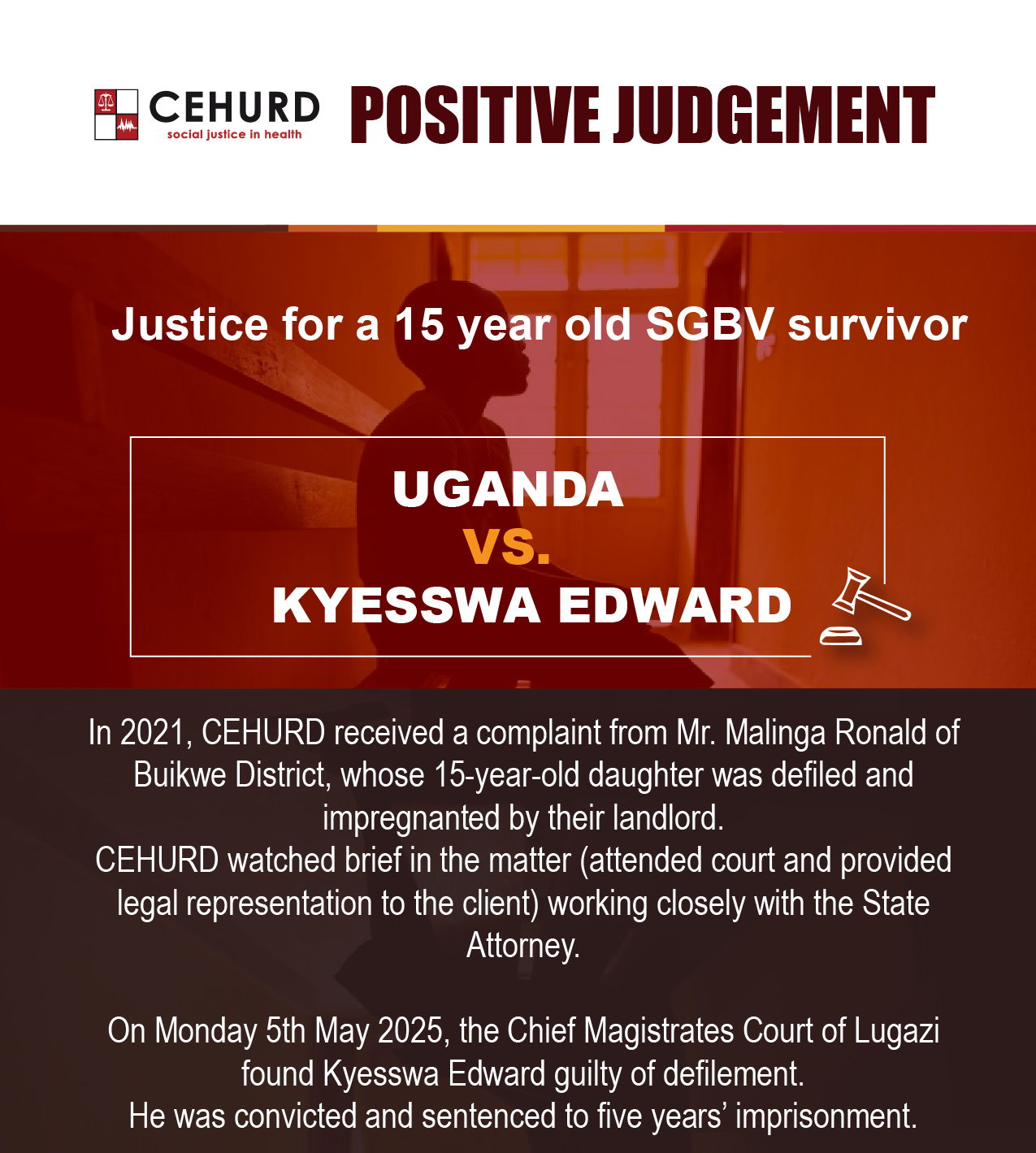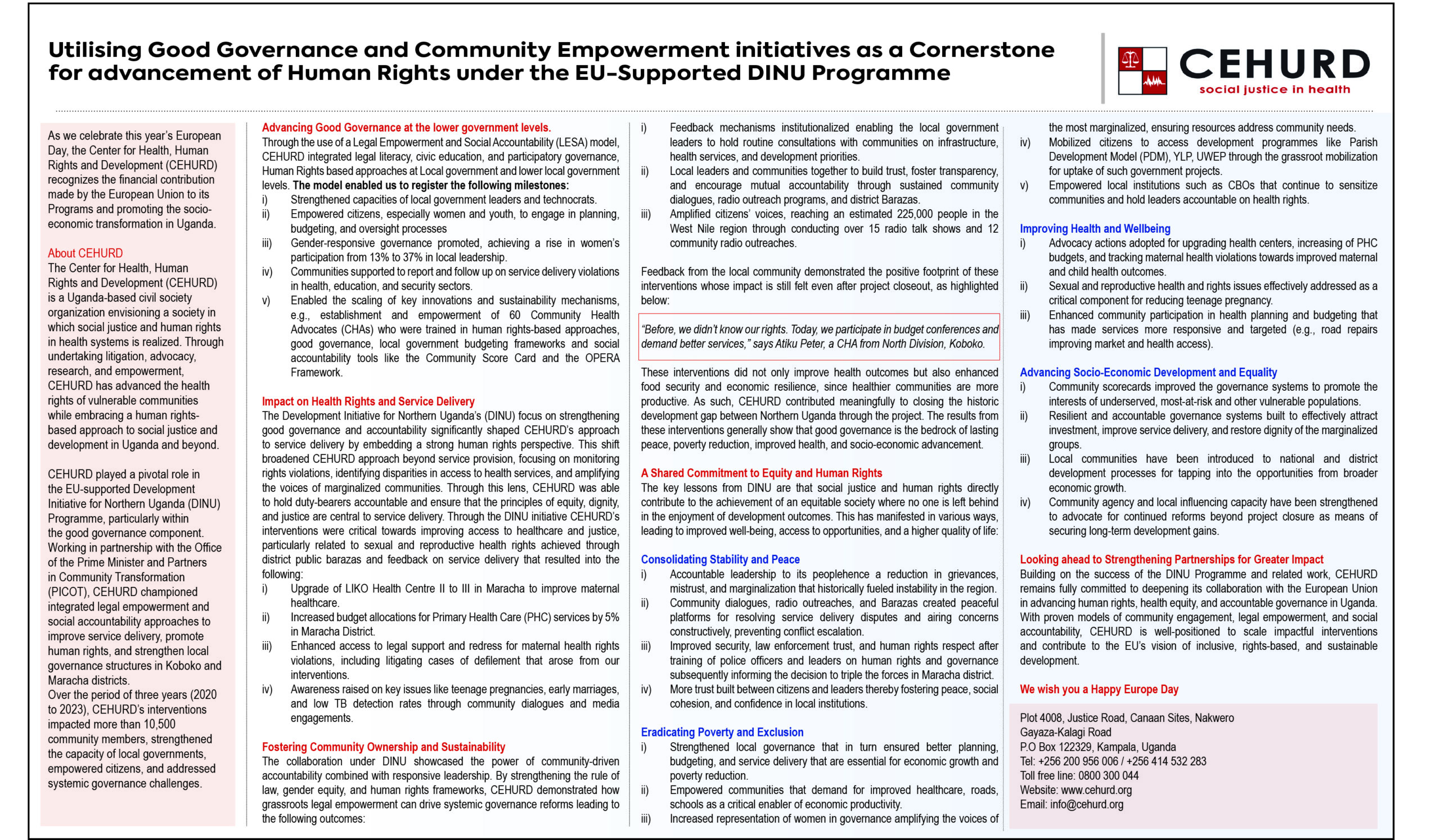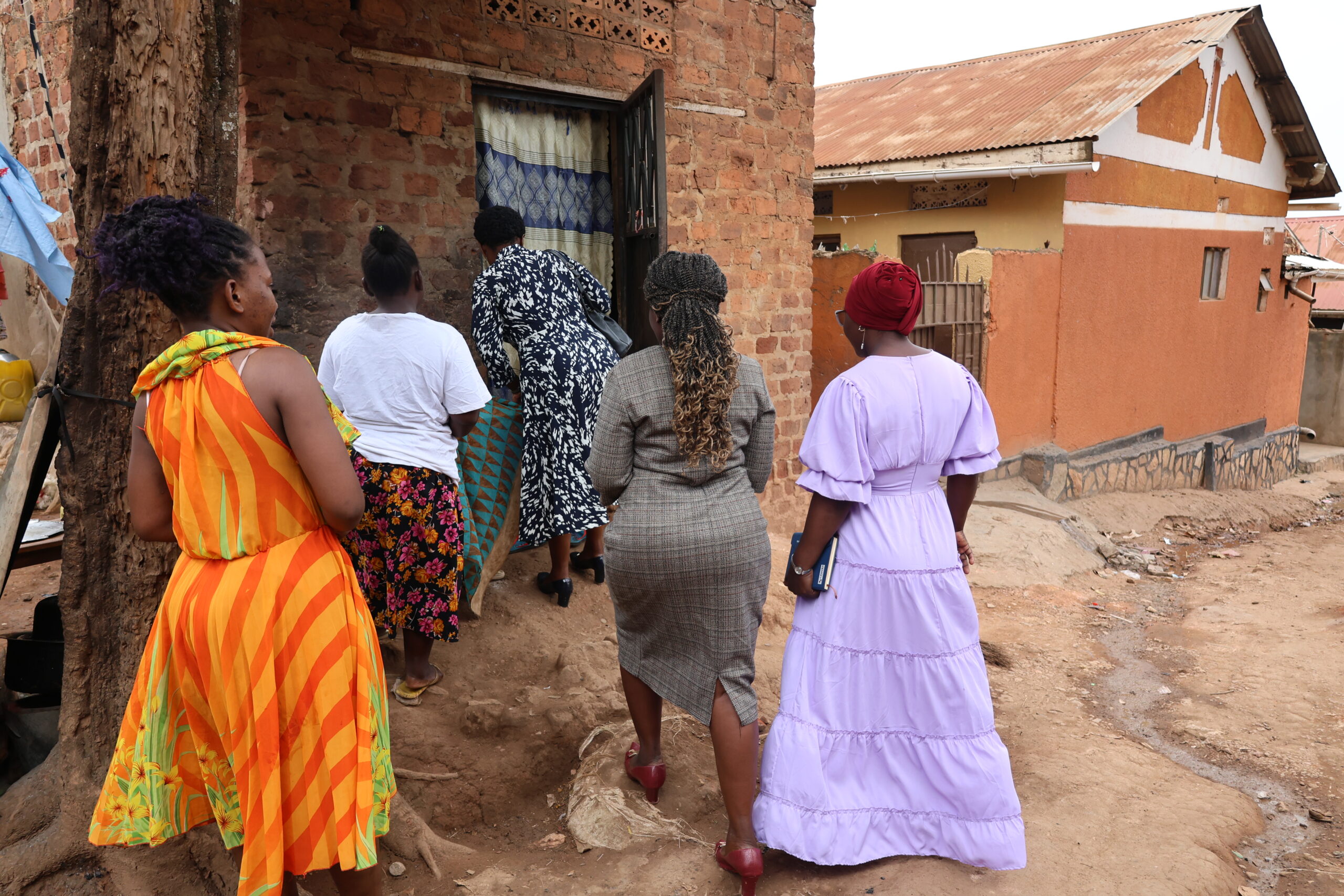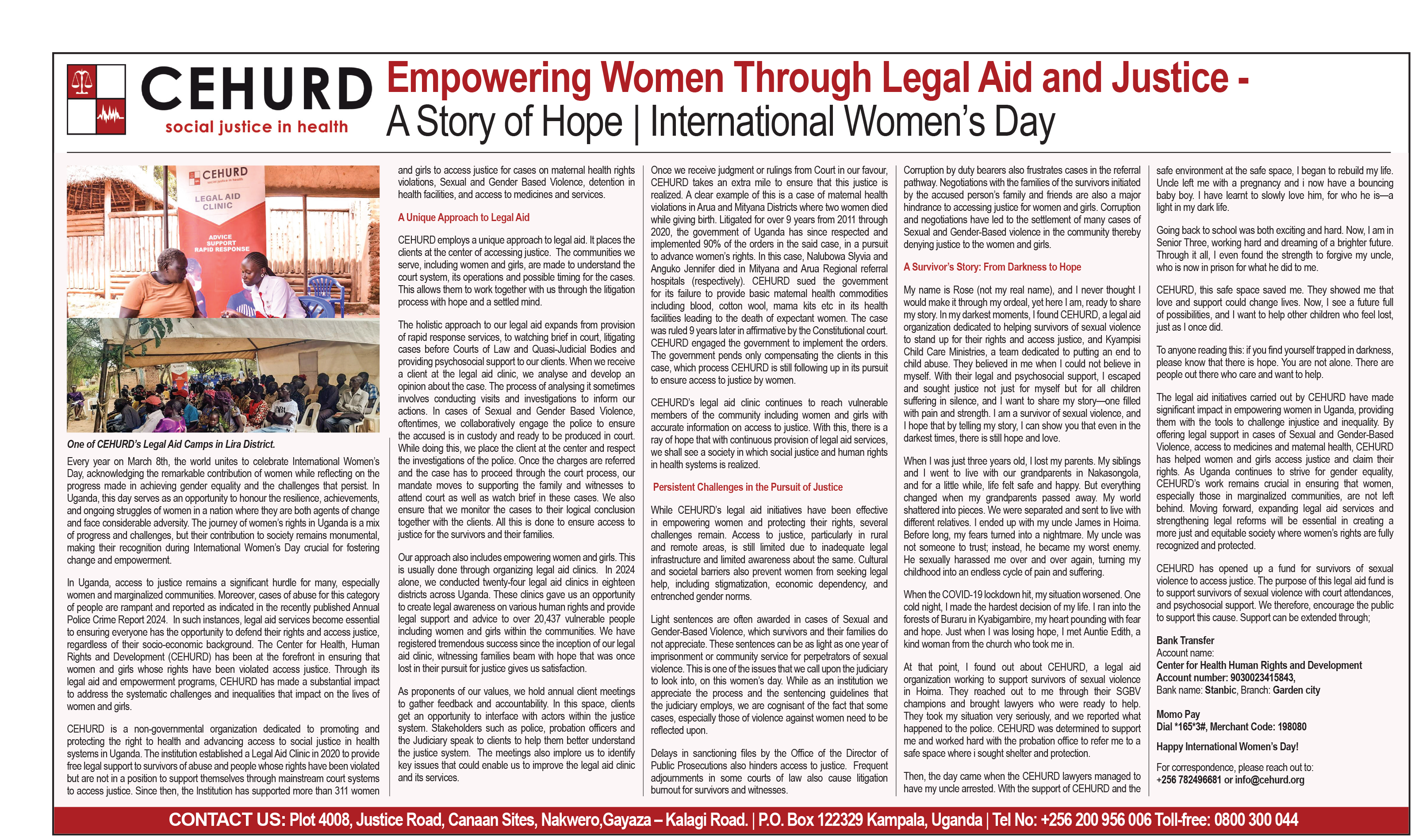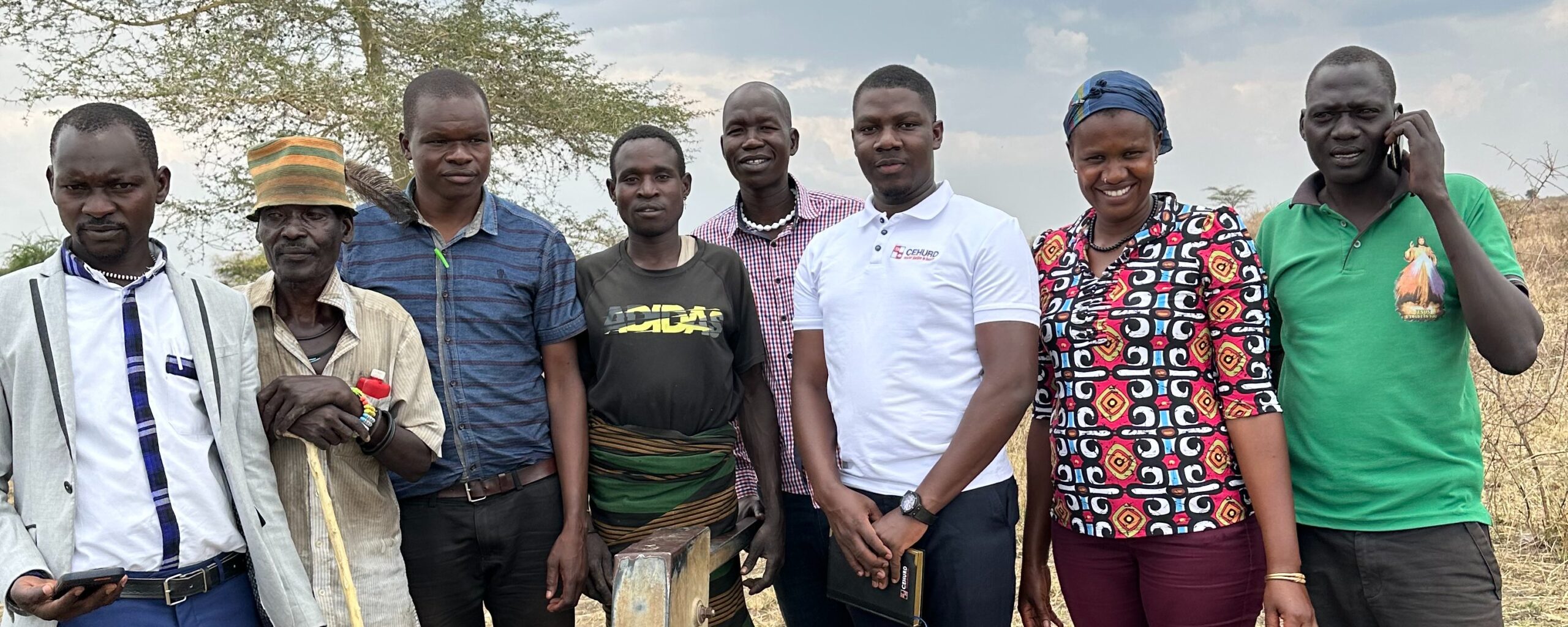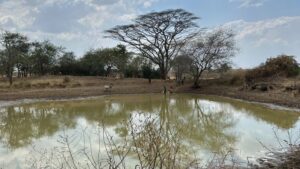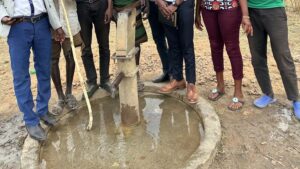~ Compiled by Ms Nakibuuka Noor Musisi
At 15 years of age, Aidah (pseudo name) still remembers the unfortunate nights that her father sexually abused her. On several occasions, the father would allegedly leave their bedroom, sneak into Aida’s room and sexually abuse her. He sternly warned Aida never to tell what he was doing to her to the mother or anyone, or else he kills her. Nakaggwa, Aida’s mother observed that she was limping and asked Aida what had happened. Aida was frightened to speak up but she secretly told her mother what her father did to her every night.
“He forces himself on me every night. He threatened to kill me and stop paying my school fees if I reported him. I am tired of this, mother! It is very painful” Aida said
With this information, Nakaggwa had to find all possible ways of ensuring that her child is protected. Unfortunately, the country was under COVID 19 lockdown and movement was highly restricted so they could not escape the violence. That fateful night, Nakaggwa opted not to sleep. “I was ready for anything. I stayed awake and watched as he got out of bed. After a few minutes, I slowly followed him and found him on top of our child. When I shouted, he quickly opened the door and ran out. I told him I had seen him”
Nakaggwa braved the COVID 19 restrictions, she ran and reported the matter to police. The police officers arrested the perpetrator and detained him. Unfortunately, the community turned against Nakaggwa calling it an abomination for a wife to put a husband in prison. They ignored the illegal actions that the accused had imperilled upon his own child.
Within a short period of time, Nakaggwa was referred by a health care provider to the Center for Health Human Rights and Development (CEHURD)’s Legal Aid Clinic for legal support. In May 2020, she requested the legal aid clinic to support her in her bid to access justice for her daughter. The matter has been in court wherein the alleged abuser was remanded as the case awaits hearing and judgment.
On 18th March 2025, a team from CEHURD paid a courtesy visit to this family. This visit was meant to establish how the family is coping with the situation, discuss the progress of the case and find means of supporting them to thrive despite the challenges faced. It was a visit meant to restore hope in the family whose legal battles have taken a while in the justice system and may cause the victims uncertainty.
With her beautiful smile, Aidah was happy to see us. “Mom, (as she referred to one of us) I am glad to see you. My mother tells me that you are in the background following up our case to ensure that we get justice. Thank you for taking care of me, loving me and for having my case proceed in court.” She noted.
The interaction with this family revealed several things. First, the family is very grateful for the legal support that CEHURD continues to provide to ensure justice is accorded to Aida. This is despite the community’s initial resentment for the family to sue the father/ husband for abusing his own child. The bravery and resilience that Nakaggwa put up to challenge this community perception make her a hero. Initially, the community threatened to burn Nakaggwa’s family in the house. At one moment, her step broke into the house with a sharp panga to harm them but she quickly called the local council leadership and police for help.
However, the family is afraid that the perpetrator might be released from prison and return to the community seeking vengeance against them. Our visit prepared this family for different possible outcomes of the case, based on our experience with such matters and discussed possible solutions with Nakaggwa in preparation for such uncertainties.
Aidah still struggles with health challenges that are a result of this abuse. In this meeting, Aida noted that she is struggling with nightmares as well as pain in the backbone and pelvic bones among others.
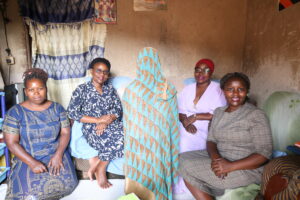
While Aidah is currently out of school due to lack of finances for school fees, she is still eager to pursue her education. In the meantime, she hawks simple merchandise and assists food vendors to cover her basic needs like sanitary and health requirements. This also helps her spend limited time in the community that continues to stigmatise and threaten her and her mother with violence. She eagerly looks forward to an opportunity to return to school.
“I am currently hawking food, but I am tormented by men who make sexual advances toward me. They make me sick and remind me of the abuse I endured from my father. I wonder why they cannot tell that I am still young. I continue to face stigma from the community, but I am not threatened. I am positive and very strong. I know that I am a winner and that I shall overcome. My desire is to become a midwife, sexual abuse will never kill that dream,” Aidah reckoned.
Aidah’s case is one of many that occur annually in Uganda. CEHURD’s Legal Aid Clinic receives close to thirty (30) cases of Sexual and Gender-Based Violence a quarter. The Annual Police Crime Report for 2024 indicates that girls who were survivors of sexual violence aged between 9-14 years were 2,514. This number is high despite the several laws and interventions on SGBV which calls for more actions to combat such cases. CEHURD calls upon the government to invest in interventions aimed at putting a stop to SGBV, including constructing and managing shelters for survivors of SGBV.
The writer is the Deputy Executive Director at the Center for Health, Human Rights and Development (CEHURD). For any health rights violation, call our toll-free 0800300044.

